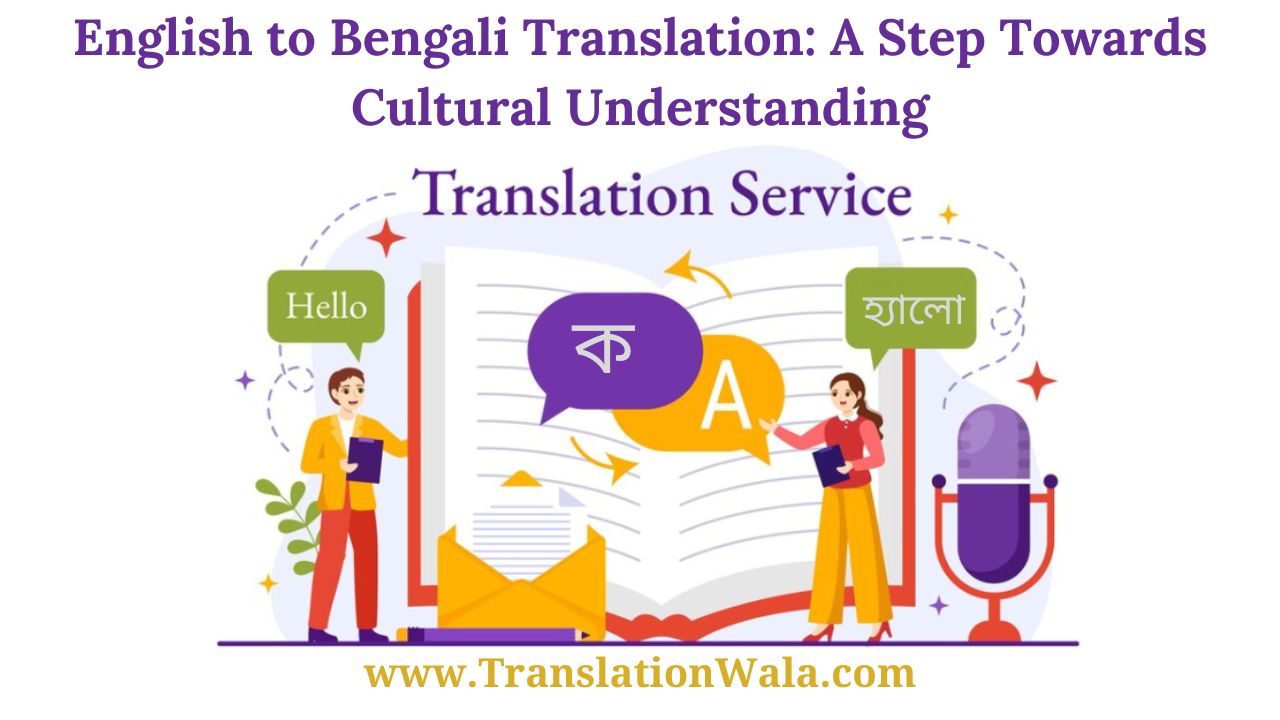English to Bengali Translation: All the languages spoken in the world have their own music that comes from their past and culture. These languages are patchy, but English and Bengali stand out because they carry the words of a lot of people from a lot of different countries. Languages that seem to be from different places can talk to each other in more ways than one. It’s about making connections that teach respect, understanding, and useful knowledge for everyone. People from all over the world are getting to know each other better through this trip where English is being changed into Bengali.
More Than Words: Navigating the Labyrinth of Cultural Nuances
In its purest form, English to Bengali Translation is more than just swapping words. It’s tricky to figure out both the meaning behind the words and the cultural background that gives them life. “It’s raining cats and dogs” might sound like “কঁকুর-বিড়াল বৃষ্টি” in Bengali, but the fun exaggeration is lost in the written form. An experienced interpreter, on the other hand, would know that a phrase like “ধারে ধারে ঝমঝম বৃষ্টি” (heavy rain pouring down) is needed to reflect the meaning of the phrase while still staying true to the Bengali language.
The best example of this awareness of regional differences is in the writing. Think of Rabindranath Tagore’s beautiful poems, which are full of images and meanings that come from Bengali myths and folklore. If you translate them into English without knowing the cultural background, the emotional depth and artistic complexity could be lost. But if a translator learns about the meaning of the “bakul” flower or the complexities of the “adhunikata” (modernity) movement, they can write translations that are true to the spirit of the original and make the reader feel the same way.
Also Read: Navigating the Nuances of Gujarati Language: Expertise Matters in English to Gujarati Translation
Beyond Literature: Sharing Knowledge and Empowering Communities
The bridge that translation builds goes far beyond the pages of well-known books. Accurate and culturally aware translation is a key part of strengthening communities and encouraging everyone to share knowledge in the areas of education, study, and social development. One example of how translation empowers and connects different communities is when an English-to-Bengali manual gives a Bengali farmer access to information on sustainable farming methods. Another example is when translated research papers make a scientific breakthrough available to a larger Bengali audience.
Challenges and Opportunities: Adapting to a Dynamic Landscape
Being able to switch between languages isn’t easy, though. Because Bengali is so different, with regional accents and other changes, it needs a complex approach. Depending on where you live or your place in society, words can have different meanings and connotations. Additionally, both English and Bengali are always changing, with new slang and scientific words appearing almost every day. Because of this, translators need to be fluent in both languages and very aware of changes in culture and language trends.
A lot of things can be done when English to Bengali Translation, even though there are some problems. When we understand how hard it can be to talk about different cultures, we make the world a place where everyone’s point of view can be heard, understood, and respected. It’s easier for people to understand each other when we break down the walls of words that often keep them apart.
Also Read: Breaking Barriers with Flawless English to Marathi Translation
Conclusion: A Symphony of Understanding – One Translation at a Time
When it comes to English to Bengali Translation, it is more than just a technical ability; it is a method to link people from various nations and assist them in better understanding each other, one carefully selected word at a time. Not only does translating allow one to acquire new information and a new point of view on many matters, but it also helps to make the world a better place by developing an atmosphere that places a high value on the sharing of experiences and the enhancement of understanding. Do something to learn more about the interesting world on the other side, and join the chorus of voices singing the song of cultural link.
